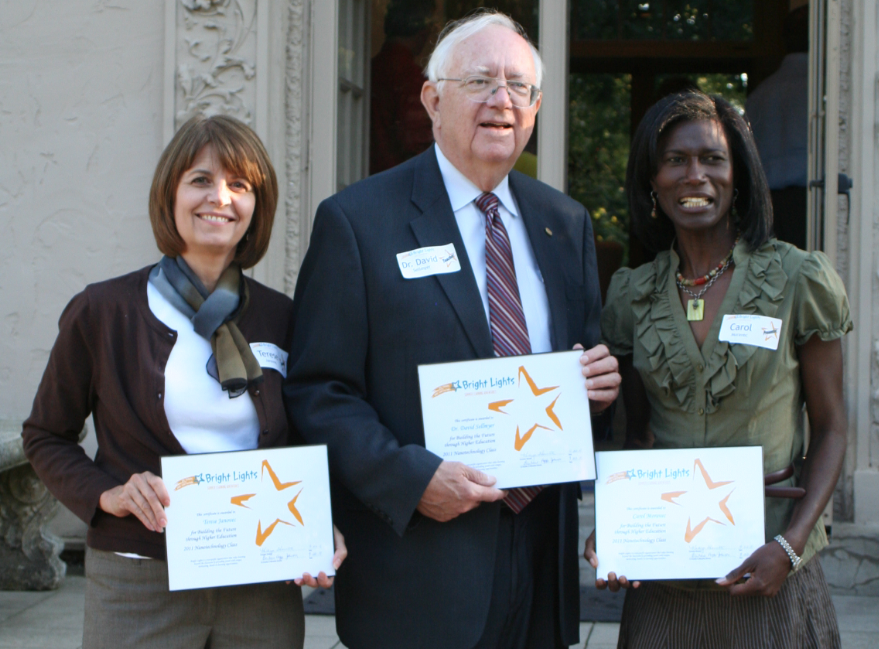
The Nebraska Center for Materials and Nanoscience has received an award for a course that helped educators incorporate nanotechnology into middle- and high-school science curriculum.
The award, “Building the Future Through Higher Education,” was presented in September to UNL’s David Sellmyer and Terese Janovec by the Lincoln-based Bright Lights program. Bright Lights, which started in 1987, is a summer enrichment program open to middle and high school students. Courses are designed to provide interesting, hands-on and minds-on learning.
The center received the award because of an innovative teaching approach that first showed educators how to teach nanotech lessons then gave them a chance to try out the new skills in a middle-school setting.
“We wanted to get kids and parents interested in nanoscience, recruit future students to UNL, and offer teachers an opportunity to use what they had learned from the workshop,” said Janovec, the education and outreach coordinator for the center. “Middle-school students would benefit by learning information about nanoscience from UNL faculty and graduate students and teachers would get valuable experience.”
The two-step approach began in early June when teachers enrolled in education programs in UNL’s College of Education and Human Sciences attended a full-day “Hands-On Nanoscience” workshop. Organized by the NCMN, the workshop featured professor Steve Ducharme and colleagues providing one-to-one coaching on how to use specialized nanoscience school kits.
In late June, these teachers were able to use those lessons in a Bright Lights “NanoCamp,” organized by the NCMN and the UNL Department of Physics and Astronomy. The camp was open to students in grades six to nine. Instruction was provided by the “Hands-On Nanoscience” workshop participants working alongside UNL faculty, graduate students and Bright Lights staff. Topics and supporting categories included synthetic polymers, carbon nanotubes, self assembly, DNA, ferrofluids, stem cells, catalysts, alternative energy, physics of waves, and nano ice cream.
“NCMN partnering with Bright Lights was a win-win for everyone,” said Sellmyer. “Bright Lights contributed excellent student recruitment and classroom management services while UNL faculty members and graduate students worked hard to provide high quality instruction and hands on experience about nanoscience to teachers. We hope to expand our class offerings next year.”
For more information on the NCMN curriculum and NanoCamp, go to http://go.unl.edu/uuy.







